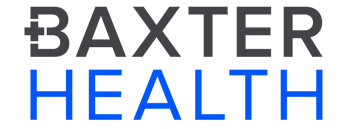
COVID-19 and Safety Precautions
It's Our CARE Commitment.
If you currently have a positive COVID-19 test, COVID-19 symptoms or are a close contact of someone with COVID-19 and are:
- A visitor: please do not enter the hospital.
- A patient: please wear a mask at all times and immediate notify the department you are a patient of upon arrival.
- Healthcare personnel: contact Employee Health or department leader immediately.
Helpful Links
-

Baxter Health and KTLO, Classic Hits and The Boot, organizers of the annual Health Fair and Expo, have announced a change in the event’s scheduled ...
Continue Reading -

Baxter Health would like to inform the public, especially endoscopy and gastroenterology patients, about an important update regarding access to the ...
Continue Reading -

Baxter Health recently welcomed vascular surgeon Heath J. Broussard, MD, to the medical staff. He has joined the Baxter Health Heart and Vascular ...
Continue Reading -

Thomas E. Knox, MD, a name that embodies dedication, expertise, and excellence in the field of orthopaedic medicine, has joined the staff of Baxter ...
Continue Reading -

After unanimous votes by both the Fulton County Quorum Court on Tuesday, February 20, 2024, and the Baxter Health System Board of Directors on ...
Continue Reading -

Dave Roberts, a board-certified physician assistant with over 20 years of experience, has joined the staff of Baxter Health Family Clinic at Mountain ...
Continue Reading -

Leading with Empathy and Resolve in Hospital Security Asked what inspired a decade in law enforcement followed by 15 years leading Baxter Health’s ...
Continue Reading -

The Multifaceted Responsibilities of Baxter Health Security Officer Jay Nichols came to his role with the Baxter Health Security Department by a ...
Continue Reading -

Officer Fletcher’s Dual Roles as Protector and Compassionate Samaritan At 6'7" and 400 pounds, Officer Josh Fletcher disarms many potentially volatile ...
Continue Reading -

Officer training lies at the heart of security When it comes to keeping Baxter Health safe, Director of Security Mike Armstrong maintains a ...
Continue Reading
How Can We Help?



.jpg)






